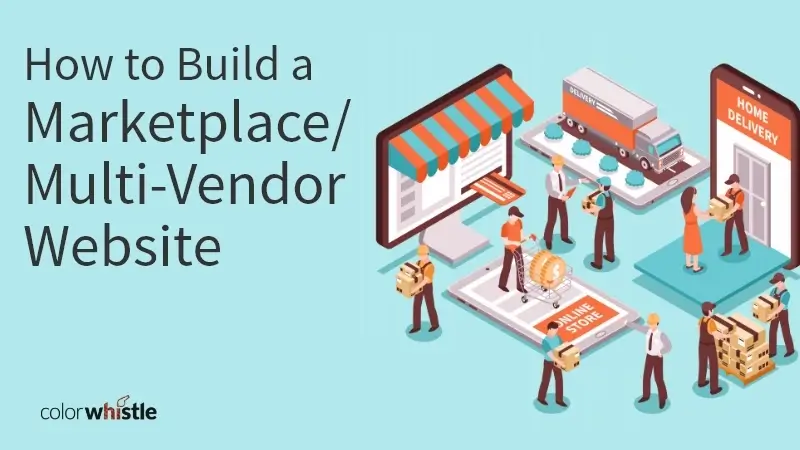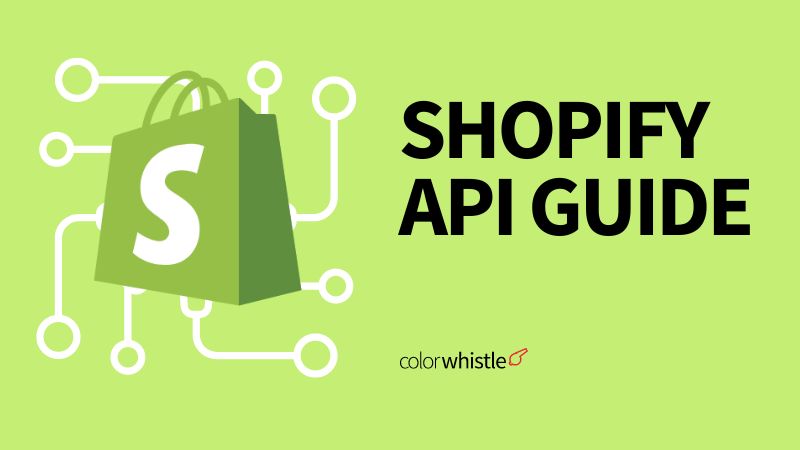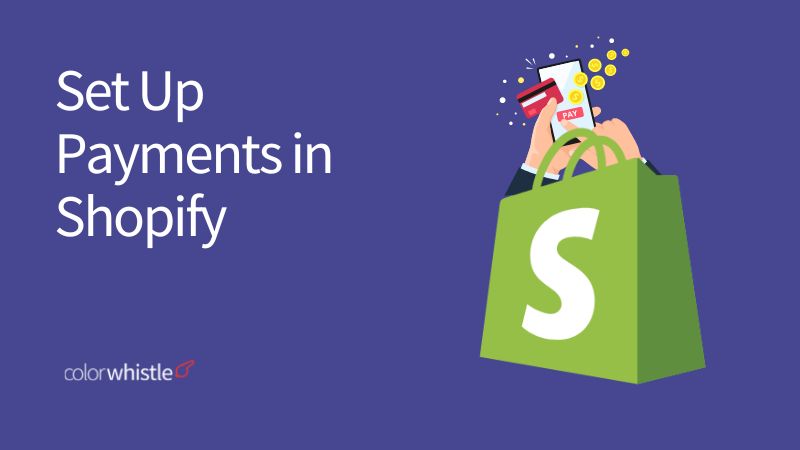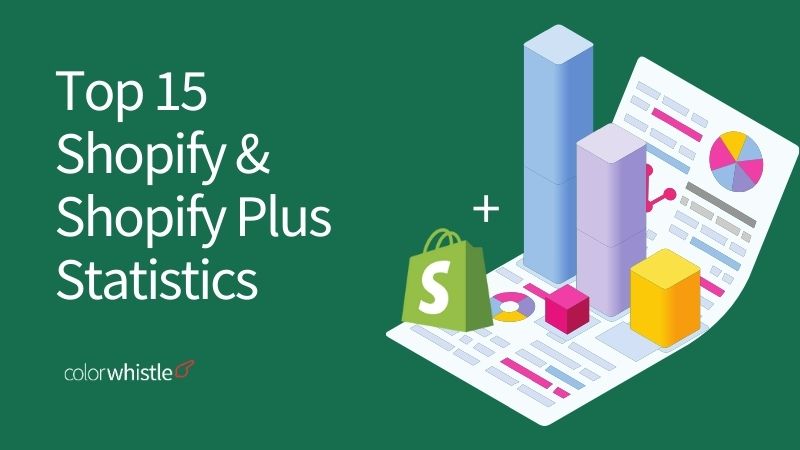The popularity of e-commerce marketplaces is growing exponentially.
You would have probably come across successful e-commerce marketplace websites such as Amazon, eBay, Etsy, or Flipkart. Websites like Amazon have already crossed the 100 billion revenue mark.
According to BigCommerce, 48% of online shoppers navigate straight to a large e-commerce marketplace when buying something online. RioRevolution did a detailed analysis of COVID-19 impact on e-commerce and found out that the market for handcrafted items like masks and home furnishings has exploded during the pandemic, with sales spiking 146% on Etsy’s marketplace as a result. That’s the power of a marketplace website.
Even with technology and digital transformation growing at an exponential rate, building a marketplace website is not an easy task. In this blog, you will find great tips from ColorWhistle’s e-commerce team on how to make a marketplace website, the cost to develop a custom platform, and other important information.
Also Read
Let’s First See What is an E-commerce Marketplace
An e-commerce marketplace or multi-vendor marketplace is a platform where you can find products or services from multiple vendors on the same platform. It typically connects buyers and sellers directly.
To survive in this competitive field, you must provide advanced features such as e-commerce fraud deduction and other features such as detailed tracking of purchasing in real-time. To know how a typical marketplace works, take a look at this image below.

Image Source: cedcommerce.com
What is the Difference Between a Marketplace and Online Store?
| Marketplace | Online Store |
|
|---|---|---|
| No of sellers | Multiple | Only one |
| Popularity | Widely known among audiences and usually gets a huge number of visitors | Need to attract users to the store by doing various digital marketing activities such as SEO |
| Trust factors | Already enjoys customers' trust | Needs to build customers' trust from scratch |
| Business model choice | Sellers have the option to choose the business model or the membership plan they prefer | The seller has to invest in the store on a regular basis (development, maintenance, and SEO) |
| Buyer protection program | Offers a detailed one | Have their own policies |
| Sales model | Fixed, auction, or mixed sales | Fixed sales model |
| Sales model | Fixed, auction, or mixed sales | Fixed sales model |
What Are the Types of Marketplace?
The e-commerce marketplace industry can be classified in the following ways.
1. Product Marketplace
Places, where people go to buy products, are known as product marketplaces. Some well-known product marketplaces are Etsy, Amazon, and eBay. B2B marketplaces include ThomasNet.com, Australian TradeKey.com, OFweek.com, and more.
Here are some common features found on these marketplace websites,
- Payment options – Credit/debit cards, Apple Pay, PayPal, cash on delivery, and gift cards
- Mobile apps – For iOS and Android
- Website abilities – Social login, search options, product listing/variations, recommended items, shipping estimation, user review system, bidding options, customer experience tracker, discounts, coupons, fee calculator, layered navigation, etc
- Website technologies – CMS (WordPress, WebsiteBaker), Frameworks (J2EE, PHP, Adobe ColdFusion, Perl, Express, Ruby on Rails), JS libraries (HTML5 History API, JQuery, SWFObject, Modernizr, Ember.js, Lightbox JS, JQuery, Magnific Popup, Facebook SDK, HoganJS, matchMedia, etc)
2. Service Marketplace
Marketplaces people go to search for different services such as transportation, household, repair, car rental, apartment rental, IT freelancing, beauty, and medical are known as service marketplaces.
Here are some common features found on these marketplace websites,
- Payment options – Credit/debit cards, PayPal, E-check, local fund transfers, wire transfer, express withdrawal, and ACH direct deposit
- Mobile app – For iOS and Android
- Website abilities – Social login, search options, listing creation, feedback, instant chat, bidding, submit proposals, two-way ID verification, dispute resolution, rating system, time tracker, and more
- Website technologies – CMS (WordPress, Dyn, Akamai), JS libraries (RequireJS, Backbone.js, Underscore.js, jQuery UI, Hover Intent, Facebook SDK, Prototype, JQuery, Modernizr, yepnope, Amplify JS, FlexSlider, Angular JS, KnockoutJS, Isotope, Typeahead.js, now.js, and more)
3. Project Marketplace
Project marketplaces arrange fundraising (mostly crowdfunding) for startup projects. In return, people who invest in the project may get privileges like using the final product or a specific amount of shares. Examples of such type of project marketplaces are Fundable, Kickstarter, and Indiegogo.
Here are some common features found on these marketplace websites,
- Payment options – Credit/debit cards, PayPal, Apple Pay, ACH payments, Stripe integration, and WePay
- Mobile app – For iOS and Android
- Website abilities – Social login, start a fundraiser, become an investor, campaigner profile cards, get investor database, advanced search, create perks, partner page, project owner identity verification, 24*7 customer support, and more
- Technologies used – Frameworks (Laravel, Startup Framework, PubNub, JQuery, Facebook SDK, SWFObject, Mustache, Moment JS, History JS, Skrollr, TraceKit, Mailcheck, and more)
4. Hybrid Marketplace
Hybrid marketplaces are areas that offer both products and services. Examples of such types of marketplaces are Craigslist, Oodle, and OLX.
Here are some common features found on these marketplace websites,
- Membership plans – Free posting, paid posting and featured listing
- Payment options – Credit/debit cards, PayPal, cash, and personal checks
- Mobile app – For iOS and Android
- Website abilities – Optional registration, obligatory registration, post an ad, search listings, feedback forum, help desk forum, public commenting, private messaging, and social sharing
- Technologies used – JS libraries (Amplify JS, JQuery, Facebook SDK, jQuery Cookie, History JS, SWFObject, Boomerang, GSAP, and Google Hosted Libraries
Also Read
How to Create a Marketplace Website?
Now that you understand what a marketplace is and the major categories, next you will probably think about what kind of marketplace website you want to build. In this section, we will discuss it in detail.
A. Things you Need to Focus on Before you Start
Once you find answers to these questions, you can move on to creating a marketplace website.
| Question | Suggestion |
|---|---|
| Who is your target audience? | 1. Peer-to-Peer (P2P) 2. Business-to-Customer (B2C) 3. Business-to-Business (B2B |
| What are you going to specialize in? | 1. Vertical e-commerce 2. Horizontal e-commerce |
| What is your financial model? | 1. Commission model 2. Subscription model 3. Listing fee model |
| What is your management type? | 1. Unmanaged 2. Partially managed 3. Fully managed |
| What products do you plan to sell? | 1. Goods 2. Services 3. Hybrid 4. Projects |
B. Comparing Ways to Build a Marketplace Platform
Now, let’s see the different ways in which you can build an e-commerce marketplace website. Keep in mind that use cases are different and it is not possible to figure out the best way to build one for every business. We will look at each option to help you give a better understanding. To get a precise recommendation, you need to get in touch with your e-commerce web development company.
1. Coding from scratch
If you want everything just the way you imagined and if you can hire professional developers, this option will be suitable for you. In this method, you will have complete access to the code, no third-party software, and complete ownership of licensing.
On the other hand, this approach is quite time consuming because a platform that handles all the transactions in a secure and smooth way is difficult to build. Even for adding custom features, a lot of experiment has to be done, which will definitely put a drain on your pocket.
What is the cost of this approach?
Building your marketplace website with the ‘coding from scratch’ method will start from $50,000.
2. Website builder
Creating a marketplace website through a website builder is affordable. You can choose Magento or Shopify as e-commerce tools and Joomla or WordPress as website builders. For more information, go through our blog on Best E-commerce CMS for Online Businesses.
These solutions come with extensive customization options. Choosing this method is one of the cheapest ways if you can handle plugins and other tools.
What is the cost of this approach?
Building a marketplace website through website builders will cost less than $20,000
3. Non-code marketplace builder
One of the fastest ways to build an e-commerce marketplace website is by using a software-as-a-service (SaaS) (eg- Arcadier) or a marketplace-as-a-service (eg-clouddesire) tool. This approach will get you one of the best UX experiences with minimal investment, and it is also fairly easy to manage your website.
What is the cost of this approach?
Creating a marketplace website via a non-code method will cost you less than $5,000
4. Build a marketplace without a code
If you have hands-on experience with no-code tools, you can create a marketplace website by yourself. If you don’t know what Webflow, Airtable, Parabola, and Jetboost mean, then it’s best to avoid this approach.
What is the cost of this approach?
Building a marketplace website with the no-code method will cost less than $6,000
5. Creating on top of an API
If you select this method, you can concentrate more on adding useful features to your website rather than giving too much focus on the basics. When compared to creating it from scratch, it is cheaper, easily customizable than a no-code tool, and you can integrate with third-party software. It is also reliable in terms of support and updates. However, you need to have a strong team of API developers by your side.
What is the cost of this approach?
Creating a marketplace website via the API method will cost less than $10,000
Also Read
Frequently Asked Questions about E-commerce Marketplace Development From our Customers
Does the Marketplace Platform Provide Secure Transactions for Both Buyers and Sellers?
A marketplace connects both buyers and sellers in a single place. So, it must provide the most convenient experience for secure payment exchange. The marketplaces that the ColorWhistle team can build will have features like regular payments, automatic refunds, and quick payment cancellations. We have also worked on white label e-commerce projects that required advanced fraud prevention and detection systems.
What is the Best Way to Build a Marketplace?
It depends on your requirements. If you have a sizable budget, writing code from scratch is the best way to go. In other situations, options such as building a marketplace with open-source software, website builder, no-code marketplace builder, no-code tools, API-based marketplace, or SaaS tools might be better
What Are the Standard Features an E-commerce Marketplace Website Must Have?
We have prepared a document that will help you find out the features that you need to add to your marketplace website. Click here to learn more
How Much Does it Cost and the Time it Will Take to Create a Marketplace Website?
Again, it depends on your requirements. The cost part covered in our blog is just a rough estimate. To get an exact cost, you need to get in touch with an e-commerce marketplace development company like ColorWhistle. To answer the question, “What is the cost to develop a custom marketplace?” we will access the hosting costs, UI/UX design development, front and backend development, quality assurance, and the possibility of maintenance. Time will also depend on the features you want to implement.
Should I Hire an Agency or Freelance Developer?
Take a look at our blog on Hiring Agency vs Freelancer to learn more.
ColorWhistle’s Expertise in E-commerce Marketplace Development
Now, it is time to share ColorWhistle’s expertise in marketplace development. We make it easy for budding entrepreneurs to start an online e-commerce business.
Our team follows the industry trends so we can offer the best solutions that will help you get started quickly. From building spaces for B2B, B2C, P2P marketplaces to creating customizable & scalable solutions, we can help you launch a powerful multi-vendor marketplace.
If you need more information about the development of a marketplace, the best CMS, custom marketplace development, or any other e-commerce related questions, fill in our contact form or give us a call at +1 (210) 787-3600. Our ColorWhistle team is always glad to help you achieve success in the online sphere.
Looking for eCommerce Development Services?
Seize and experience the transformative impact of eCommerce Development Services & Solutions with ColorWhistle.
Summary
Online marketplaces are probably the future of the retail industry. Many online marketers believe that marketplaces for businesses are an excellent opportunity to reach target customers in a place where they want to buy.
Additionally, we believe that marketplace websites have an important and valuable function. Online has become the only way to reach customers safely during the 2020 coronavirus pandemic. With the right development partner, you can create a custom marketplace platform that will secure your business even in a crisis situation like the COVID-19 pandemic.
We hope that our blog has helped you find answers to your questions.
If you have any more questions, feel free to share it in the comments section below. We are happy to answer.
In quest of the Perfect eCommerce Development Services & Solutions Buddy?
Be unrestricted to click the other trendy writes under this title that suits your needs the best!
- 28+ Best Kitchenware and Furniture Website Design Inspiration
- 11 Successful Online Kitchenware Store Website’s Inspiration
- Top 11 Online Kitchen Design Software
- Amazing Woocommerce VS Shopify Statistics Compared
- Build a WooCommerce Shopping Website in $2K Budget
- Advantages of Choosing WordPress for Your E-Commerce Website
- E-Commerce Marketplace Website Design Ideas





